Advisory Council
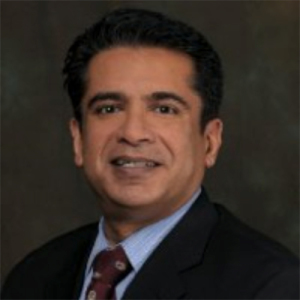 Dr. Rashid A. Chotani MD, MPH, DTM is the Executive Director of the Muslim Community Clinic. Previously he was the CEO and founder of DIMEFIL LLC., a bipartisan organization that provides insight into the dynamics of a changing world through research, analysis and policy development, the Director of Chemical & Biological Defense Programs, Director Medical Division, Program Manager & Chief Scientist at TASC Inc., and the Scientific Director at Goldbelt Raven LLC. The Senior Science Advisor to the Joint Science & Technology Office at DTRA, and from 2000 to 2005, he was an Assistant Professor at the Johns Hopkins School of Medicine and Public Health where he established the Global Infectious Disease & Surveillance Alert System. He also served at the Center for Emergency & Disaster Refuges Studies where he headed missions to Indonesia/Sri Lanka (2004 Tsunami) and Pakistan 2005 earthquake. He is a Senior Fellow at the Potomac Institute for Policy Studies, an Adjunct Professor at George Washington University and the Uniformed Services University of the Health Sciences, and as well he is an Associate at the Center for Global Health at Johns Hopkins University, and a Mentor to the Johns Hopkins School of Public Health. Dr. Chotani also holds many public service appointments that include serving on the Pandemic Influenza Coordinating Committee of the Office of the Maryland Governor; Senator Ben Cardin’s Health Advisory Committee; and the Martin Luther King Jr. Day Celebration Commission of Howard County. Dr. Chotani received his MD from the Eugenio Maria de Hostos School of Medicine in Santo Domingo, Dominican Republic in 1991, his MPH (1996) and Diploma in Tropical Medicine (2000) from the Johns Hopkins School of Hygiene and Public Health. He received formal training in disciplines of Vaccine Sciences (School of Public Health), Biomedical Engineering (Applied Physics Laboratory) and Hospital Epidemiology (JHU Hospital) at the Johns Hopkins University. He speaks Urdu, Hindi, Spanish, Arabic, Persian, Sindhi and Punjabi.
Dr. Rashid A. Chotani MD, MPH, DTM is the Executive Director of the Muslim Community Clinic. Previously he was the CEO and founder of DIMEFIL LLC., a bipartisan organization that provides insight into the dynamics of a changing world through research, analysis and policy development, the Director of Chemical & Biological Defense Programs, Director Medical Division, Program Manager & Chief Scientist at TASC Inc., and the Scientific Director at Goldbelt Raven LLC. The Senior Science Advisor to the Joint Science & Technology Office at DTRA, and from 2000 to 2005, he was an Assistant Professor at the Johns Hopkins School of Medicine and Public Health where he established the Global Infectious Disease & Surveillance Alert System. He also served at the Center for Emergency & Disaster Refuges Studies where he headed missions to Indonesia/Sri Lanka (2004 Tsunami) and Pakistan 2005 earthquake. He is a Senior Fellow at the Potomac Institute for Policy Studies, an Adjunct Professor at George Washington University and the Uniformed Services University of the Health Sciences, and as well he is an Associate at the Center for Global Health at Johns Hopkins University, and a Mentor to the Johns Hopkins School of Public Health. Dr. Chotani also holds many public service appointments that include serving on the Pandemic Influenza Coordinating Committee of the Office of the Maryland Governor; Senator Ben Cardin’s Health Advisory Committee; and the Martin Luther King Jr. Day Celebration Commission of Howard County. Dr. Chotani received his MD from the Eugenio Maria de Hostos School of Medicine in Santo Domingo, Dominican Republic in 1991, his MPH (1996) and Diploma in Tropical Medicine (2000) from the Johns Hopkins School of Hygiene and Public Health. He received formal training in disciplines of Vaccine Sciences (School of Public Health), Biomedical Engineering (Applied Physics Laboratory) and Hospital Epidemiology (JHU Hospital) at the Johns Hopkins University. He speaks Urdu, Hindi, Spanish, Arabic, Persian, Sindhi and Punjabi.
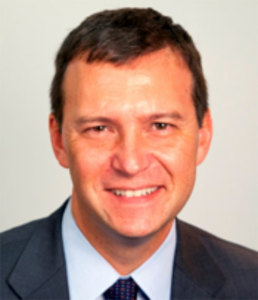 Brian Katulis is a Senior Fellow at the Center for American Progress, where his work focuses on U.S. national security policy in the Middle East and South Asia. Katulis has served as a consultant to numerous U.S. government agencies, private corporations, and nongovernmental organizations on projects in more than two dozen countries, including Iraq, Pakistan, Afghanistan, Yemen, Egypt, and Colombia. From 1995 to 1998, he lived and worked in the West Bank and Gaza Strip and Egypt for the National Democratic Institute for International Affairs. Katulis received a master’s degree from Princeton University’s Woodrow Wilson School for Public and International Affairs and a B.A. in history and Arab and Islamic Studies from Villanova University. In 1994 and 1995, he was a Fulbright scholar in Amman, Jordan, where he conducted research on the peace treaty between Israel and Jordan. Katulis has published articles in several newspapers and journals, including The Washington Post, Los Angeles Times, Boston Globe, Baltimore Sun, and Middle East Policy, among other publications. He is co-author of The Prosperity Agenda, a book on U.S. national security published by John Wiley & Sons in 2008. Katulis speaks Arabic.
Brian Katulis is a Senior Fellow at the Center for American Progress, where his work focuses on U.S. national security policy in the Middle East and South Asia. Katulis has served as a consultant to numerous U.S. government agencies, private corporations, and nongovernmental organizations on projects in more than two dozen countries, including Iraq, Pakistan, Afghanistan, Yemen, Egypt, and Colombia. From 1995 to 1998, he lived and worked in the West Bank and Gaza Strip and Egypt for the National Democratic Institute for International Affairs. Katulis received a master’s degree from Princeton University’s Woodrow Wilson School for Public and International Affairs and a B.A. in history and Arab and Islamic Studies from Villanova University. In 1994 and 1995, he was a Fulbright scholar in Amman, Jordan, where he conducted research on the peace treaty between Israel and Jordan. Katulis has published articles in several newspapers and journals, including The Washington Post, Los Angeles Times, Boston Globe, Baltimore Sun, and Middle East Policy, among other publications. He is co-author of The Prosperity Agenda, a book on U.S. national security published by John Wiley & Sons in 2008. Katulis speaks Arabic.
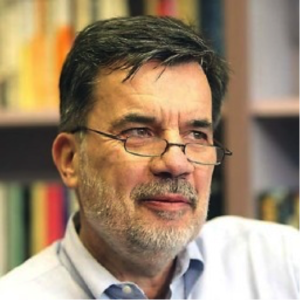 Alexander Kitroeff Ph.D. is Associate Professor of History at Haverford College where he teaches courses on the history of modern Europe and the Mediterranean. His research interests focus on nationalism and ethnicity in modern Greece and its diaspora. He has taught at the Center for Byzantine & Modern Greek Studies at Queens College, CUNY, the Hellenic Studies Program at Princeton University, the Onassis Center for Hellenic Studies at New York University, and served as the Venizelos Chair of Modern Greek Studies at the American College in Greece. Professor Kitreoff will soon publish his latest book on the history of the Greek Orthodox Archdiocese in America, adding to his four other books, The Greeks in Egypt, 1919-1937: Ethnicity & Class London, 1989; Griegos en América [The Greeks in the Americas] Madrid, 1992; Wrestling with the Ancients: Modern Greek Identity and the Olympics New York, 2004 and Ελλάς, Ευρώπη Παναθηναϊκός! 100 Χρονια Ελληνική Ιστορία [Greece, Europe, Panathinaikos! 100 years of Greek history] New York, 2010. He has co-edited a volume entitled Σμύρνη: Η Καταστροφή μιας Κοσμοπολίτικης Πόλης 1900-1922 [Smyrna: The Destruction of a Cosmopolitan City 1900-1922] Athens, 2012 and a collection of his articles on the Jews in Greece has been published as Wartime Jews: the Case of Athens Athens, 1995.
Alexander Kitroeff Ph.D. is Associate Professor of History at Haverford College where he teaches courses on the history of modern Europe and the Mediterranean. His research interests focus on nationalism and ethnicity in modern Greece and its diaspora. He has taught at the Center for Byzantine & Modern Greek Studies at Queens College, CUNY, the Hellenic Studies Program at Princeton University, the Onassis Center for Hellenic Studies at New York University, and served as the Venizelos Chair of Modern Greek Studies at the American College in Greece. Professor Kitreoff will soon publish his latest book on the history of the Greek Orthodox Archdiocese in America, adding to his four other books, The Greeks in Egypt, 1919-1937: Ethnicity & Class London, 1989; Griegos en América [The Greeks in the Americas] Madrid, 1992; Wrestling with the Ancients: Modern Greek Identity and the Olympics New York, 2004 and Ελλάς, Ευρώπη Παναθηναϊκός! 100 Χρονια Ελληνική Ιστορία [Greece, Europe, Panathinaikos! 100 years of Greek history] New York, 2010. He has co-edited a volume entitled Σμύρνη: Η Καταστροφή μιας Κοσμοπολίτικης Πόλης 1900-1922 [Smyrna: The Destruction of a Cosmopolitan City 1900-1922] Athens, 2012 and a collection of his articles on the Jews in Greece has been published as Wartime Jews: the Case of Athens Athens, 1995.

Alan Makovsky is a Non-resident Senior Fellow at the Center for American Progress, a private think-tank in Washington, DC. From 2001 to 2013, he served as a Senior Professional Staff Member (Democrat) on the Committee on Foreign Affairs in the U.S. House of Representatives, where he covered the Middle East and Turkey. At The Washington Institute for Near East Policy, a private think-tank where he worked from 1994 to 2001, Makovsky wrote and published widely on various Middle Eastern and Turkish topics. He also founded and directed The Washington Institute’s Turkey Research Program. At the State Department, where he worked from 1983 to 1994, Makovsky variously covered southern European affairs and Middle Eastern affairs for the Bureau of Intelligence and Research. He also served as Political Advisor to Operation Provide Comfort (1992) and as Special Advisor to the Special Middle East Coordinator (1993-94). Prior to working at the State Department, Makovsky worked as a free-lance journalist in Turkey. Makovsky graduated summa cum laude from Princeton University in Near Eastern Studies and holds M.A. degrees from the University of Michigan in History and Princeton University in Near Eastern Studies. He is a former Fulbright Scholar.
Nadia Oweidat Ph. D. is Assistant Professor of History at Kansas State University where she teaches courses on Islamic thought and religious theories, and is a Senior Non-Residential Fellow at New America. She has lectured on modern Islamic thought and extremism at Georgetown University. Her life and education in the Middle East, the United States, and the United Kingdom have provided her not only thorough knowledge of these diverse cultures but also a window into their intimately linked histories and, more critically, interconnected futures. Her doctoral research at the University of Oxford illuminates currents of Islamic thought and the challenges facing reformers who work from within the tradition. Prior to her doctoral studies, Dr. Oweidat worked as a Research Associate at the RAND Corporation, where she initiated and co-led research and analysis of Arabic cultural material, especially books, that promote critical thinking (Barriers to the Broad Dissemination of Creative Works in the Arab World, RAND 2008), among other research projects. Dr. Oweidat is a Board Member at the International Center for Religion and Diplomacy and is on the Advisory Board of the Muslim American Leadership Alliance (MALA). In 2014, she was chosen by the Council of the United States and Italy to participate in its 30th Annual Young Leaders Conference in Italy. She regularly provides commentary and insights on the Arab and Muslim world on various Arabic and English-speaking news networks, including the BBC, CNN, Al-Jazeera Arabic, France 24, and National Public Radio.
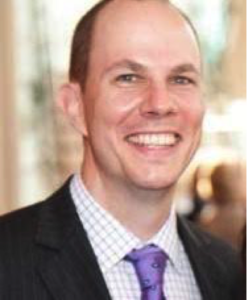 Norman Sandridge Ph. D. is Associate Professor of Classics at Howard University with research interests in ancient leadership, the emotions, epic, tragedy, and philosophy. His book, Loving Humanity, Learning, and Being Honored, studies an idealized portrait of Cyrus the Great, first king of the Persian Empire, in a fourth-century BCE work by the Athenian Xenophon. His current work explores the construct of psychopathic leadership in both the ancient and modern world. He is presently editing with Sarah Ferrario of Catholic University the Wiley-Blackwell Companion to Leadership in the Greco-Roman World, due out in 2018. Professor Sandridge is also an ongoing fellow in leadership studies at the Center for Hellenic Studies in Washington, DC, where he organizes workshops and symposia on ancient leadership for college-aged students as well as the prominent and diverse leaders in the greater Washington area.
Norman Sandridge Ph. D. is Associate Professor of Classics at Howard University with research interests in ancient leadership, the emotions, epic, tragedy, and philosophy. His book, Loving Humanity, Learning, and Being Honored, studies an idealized portrait of Cyrus the Great, first king of the Persian Empire, in a fourth-century BCE work by the Athenian Xenophon. His current work explores the construct of psychopathic leadership in both the ancient and modern world. He is presently editing with Sarah Ferrario of Catholic University the Wiley-Blackwell Companion to Leadership in the Greco-Roman World, due out in 2018. Professor Sandridge is also an ongoing fellow in leadership studies at the Center for Hellenic Studies in Washington, DC, where he organizes workshops and symposia on ancient leadership for college-aged students as well as the prominent and diverse leaders in the greater Washington area.
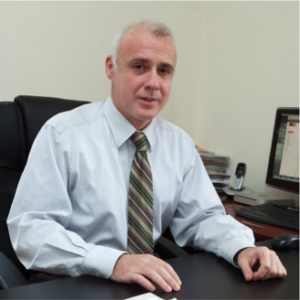 Ioannis Tsormpatzoglou is Chief Operating Officer for Innovation and Planning and Vice President of Cross Divisional Programs at Anatolia College, Thessaloniki, Greece. Tsormpatzoglou was instrumental in establishing, and currently oversees, the Center for Talented Youth (Greece), an advanced learning program operated in partnership with Johns Hopkins University. Tsormpatzoglou has provided consultancy services to the Organization for Security and Co-operation in Europe (OSCE), the World Bank, Black Sea Economic Cooperation (BSCE), The Stability and Growth Pact (SGP), and is a past SECIPRO Coordinator for the Southeast European Cooperative Initiative. In 2009 he was a Fellow at the Woodrow Wilson Center for International Scholars SEE Project, Washington, DC. Tsormpatzoglou serves on the Board of the Center for Democracy and Reconciliation in Southeast Europe (CDRSEE). He holds an MA in European Political and Administrative Studies from the College of Europe in Belgium (1995), an MA in International Relations from Tulane University (1993) and a BA in Political Science from Knox College (1990).
Ioannis Tsormpatzoglou is Chief Operating Officer for Innovation and Planning and Vice President of Cross Divisional Programs at Anatolia College, Thessaloniki, Greece. Tsormpatzoglou was instrumental in establishing, and currently oversees, the Center for Talented Youth (Greece), an advanced learning program operated in partnership with Johns Hopkins University. Tsormpatzoglou has provided consultancy services to the Organization for Security and Co-operation in Europe (OSCE), the World Bank, Black Sea Economic Cooperation (BSCE), The Stability and Growth Pact (SGP), and is a past SECIPRO Coordinator for the Southeast European Cooperative Initiative. In 2009 he was a Fellow at the Woodrow Wilson Center for International Scholars SEE Project, Washington, DC. Tsormpatzoglou serves on the Board of the Center for Democracy and Reconciliation in Southeast Europe (CDRSEE). He holds an MA in European Political and Administrative Studies from the College of Europe in Belgium (1995), an MA in International Relations from Tulane University (1993) and a BA in Political Science from Knox College (1990).

